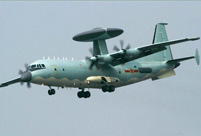

President Xi Jinping will start a visit to the Middle East next week, marking his first official trip to the region since taking office, it was announced on Friday.
Foreign Ministry spokesman Lu Kang said in a written statement that Xi will visit Saudi Arabia, Egypt and Iran from Tuesday to Saturday.
Observers said that after the conclusion of the visit, Xi's footprints worldwide will cover all major destinations on six continents.
Since this year marks the 60th anniversary of China-Arab diplomatic relations, Xi's stay in Cairo, the Egyptian capital, will be even more significant because the city is home to the headquarters of the League of Arab States.
The Chinese government issued its first Arab policy paper on Wednesday. The paper elaborates on China's strategic vision and details plans about reinforcing goodwill and cooperation with countries in the region.
Li Shaoxian, a senior expert of Middle East studies at Ningxia University in Yinchuan, Ningxia Hui autonomous region, said it is time for China to gradually step up its engagement in the Middle East, since "we have increasing economic interests, security concerns and cooperation dynamics in the region".
Meanwhile, stability in the Middle East is also related to stability in the western part of China, where 20 million Muslims live, Li said.
"China is willing and happy to see a stable Middle East," Li said.
China-Arab trade reached $155.3 billion in the first nine months of last year, and China imported 110 million tons of crude oil in the same period, a year-on-year increase of 4.6 percent.
Nabil el-Araby, secretary-general of the Arab League, told Vice-Foreign Minister Zhang Ming earlier this month in Cairo that the Arab states are ready to work with China to further tap cooperative potential.
 PLA holds joint air-ground military drill
PLA holds joint air-ground military drill Charming female soldiers on Xisha Islands
Charming female soldiers on Xisha Islands Beautiful skiers wear shorts in snow
Beautiful skiers wear shorts in snow Getting close to the crew on China's aircraft carrier
Getting close to the crew on China's aircraft carrier A beauty's dancing youth
A beauty's dancing youth Chinese stewardess celebrate test flight at Nansha Islands
Chinese stewardess celebrate test flight at Nansha Islands World's first 'underwater skyscraper'
World's first 'underwater skyscraper'  "Rent me as your girlfriend!"
"Rent me as your girlfriend!" Top 10 weapons in the world in 2015
Top 10 weapons in the world in 2015 Top 20 hottest women in the world in 2014
Top 20 hottest women in the world in 2014 Top 10 hardest languages to learn
Top 10 hardest languages to learn 10 Chinese female stars with most beautiful faces
10 Chinese female stars with most beautiful faces China’s Top 10 Unique Bridges, Highways and Roads
China’s Top 10 Unique Bridges, Highways and Roads Visa trap
Visa trap Same-sex, same abuse
Same-sex, same abuse Chinese netizens rank Japan as least-wanted neighbor
Chinese netizens rank Japan as least-wanted neighbor ‘Detective Chinatown’ pays homage to the mystery genre
‘Detective Chinatown’ pays homage to the mystery genreDay|Week